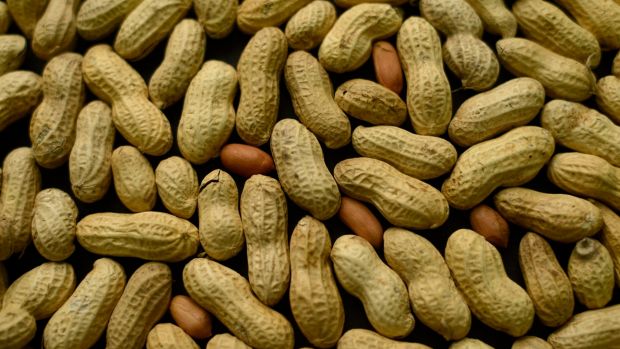
In the study, some children were feed foods containing pureed peanuts and others told to avoid the nuts until they turned five. Photo: AP
Miami: A study has found that, contrary to previous advice, feeding foods containing peanuts to babies before 11 months of age may help prevent allergies, echoing some of the findings of Australian researchers.
The findings in the New England Journal of Medicine are based on a British study of 640 children, aged four months to 11 months, who were considered at high risk of becoming allergic to peanuts either because of a pre-existing egg allergy or eczema.
An editorial published in the journal along with the study called the results “so compelling” and the rise of peanut allergies “so alarming” that guidelines for feeding infants at risk of peanut allergies should be revised soon.
The study “clearly indicates that the early introduction of peanut dramatically decreases the risk of development of peanut allergy,” said the editorial, by Rebecca Gruchalla of the University of Texas Southwestern Medical Centre and Hugh Sampson of the Icahn School of Medicine, at Mount Sinai, in New York. It also “makes it clear that we can do something now to reverse the increasing prevalence of peanut allergy”.
In the study, researchers at Evelina London Children’s Hospital randomly assigned the 640 children into two groups. Some were fed foods containing pureed peanuts and others were told to avoid peanuts until they turned five.
The children were given another allergy test when they turned five. Only 1.9 per cent of those who were fed peanuts were allergic to them, compared with 13.7 per cent of the children in the group that avoided peanuts.
Gideon Lack, a professor of paediatric allergy at King’s College London and the leader of the study, said the common practice of withholding peanuts from babies “could have been in part responsible for the rise in peanut allergies we have seen.”
The final results did not include 13 children who showed signs of peanut allergy early in the study. The children involved in the research were not fed whole peanuts, which can be a choking hazard.
“This is an important clinical development and contravenes previous guidelines,” said Dr Lack.
In January, Australian researchers said they had found a possible cure for peanut allergy.
Researchers from the Murdoch Children’s Research Institute, in Melbourne, gave about 30 allergic children increasing daily doses of peanut protein and a probiotic over an 18-month period. At the end of the trial, 80 per cent of the children could eat peanuts without any adverse reaction.
“These findings provide the first vital step towards developing a cure for peanut allergy and possibly other food allergies,” said lead researcher Mimi Tang.
Dr Lack urged parents of babies and young children with eczema or egg allergies to consult with their paediatrician about the possibility of trying to introduce peanuts into their children’s diet.
An allergy to peanuts can develop early in life. It is rarely outgrown and can be fatal. The condition is estimated to affect 1 to 3 per cent of children in the developed world. Incidence is also rising in Asia and Africa. Almost three in every 100 Australian children have a peanut allergy.
“Although there are still many unanswered questions about [the] natural history of peanut and other food allergies, this study provides new valuable practical information,” said Blanka Kaplan, paediatric allergist at Cohen Children’s Medical Centre, in New York. She was not involved in the study.
There are some caveats on the study. Parents knew which group they were in, and the study was done at a single site in London, with 75 per cent white children. However, the results were the same for the small number of children of other ethnic groups in the study, the researchers said.
Moreover, it is still unknown whether allergies might yet develop if the regular feeding of peanuts stopped. To test this, the children in the study were taken off peanuts after they turned five and are being followed for a year.
The results of the study were presented on Monday at the annual meeting of the American Academy of Allergy, Asthma and Immunology, in Houston.
AFP, AAP, Reuters
